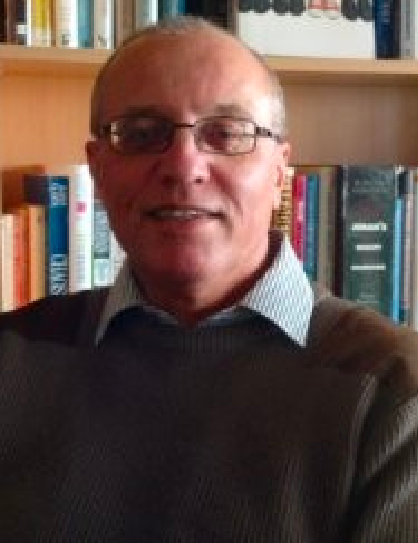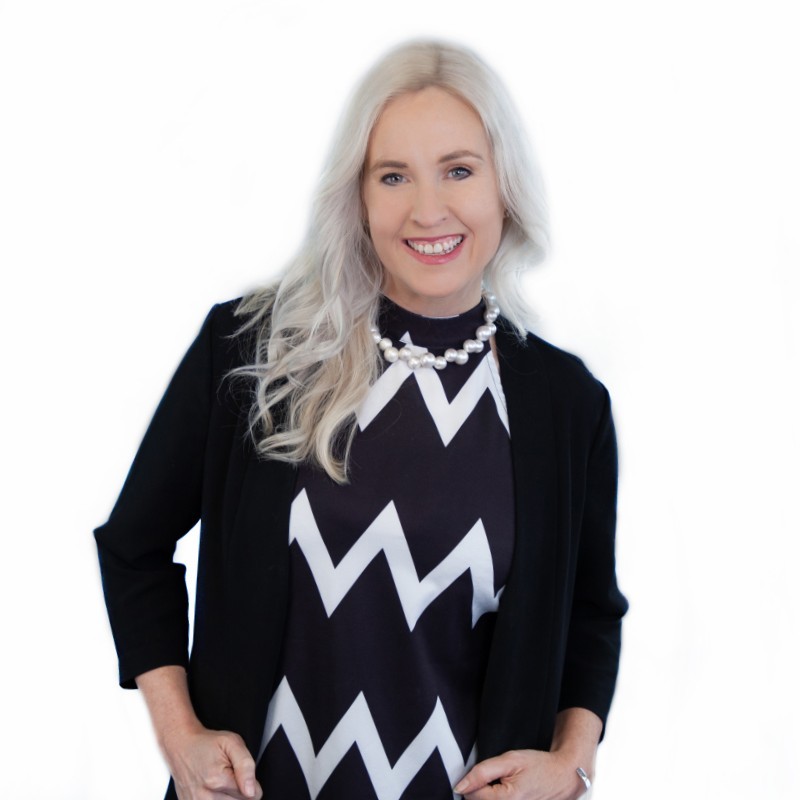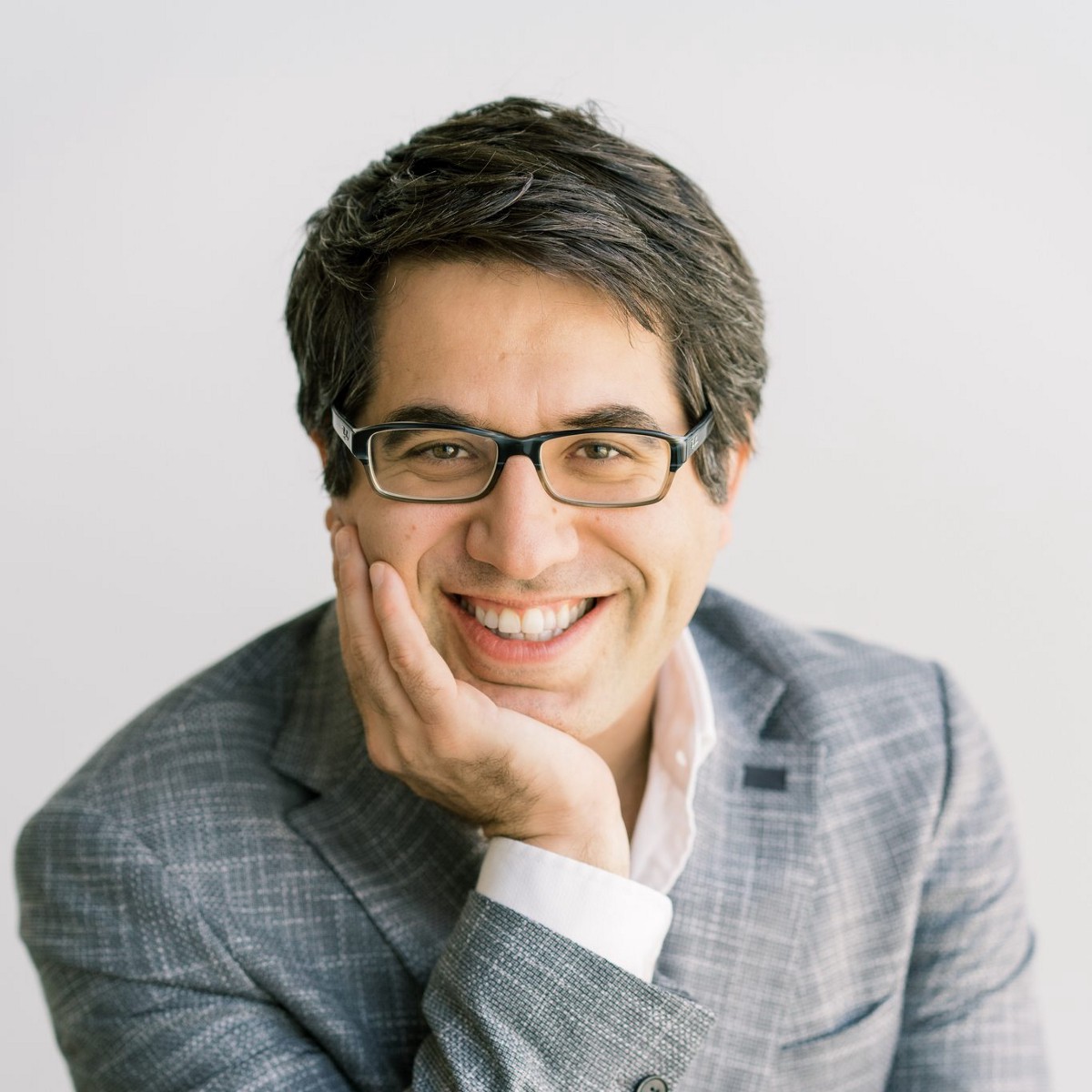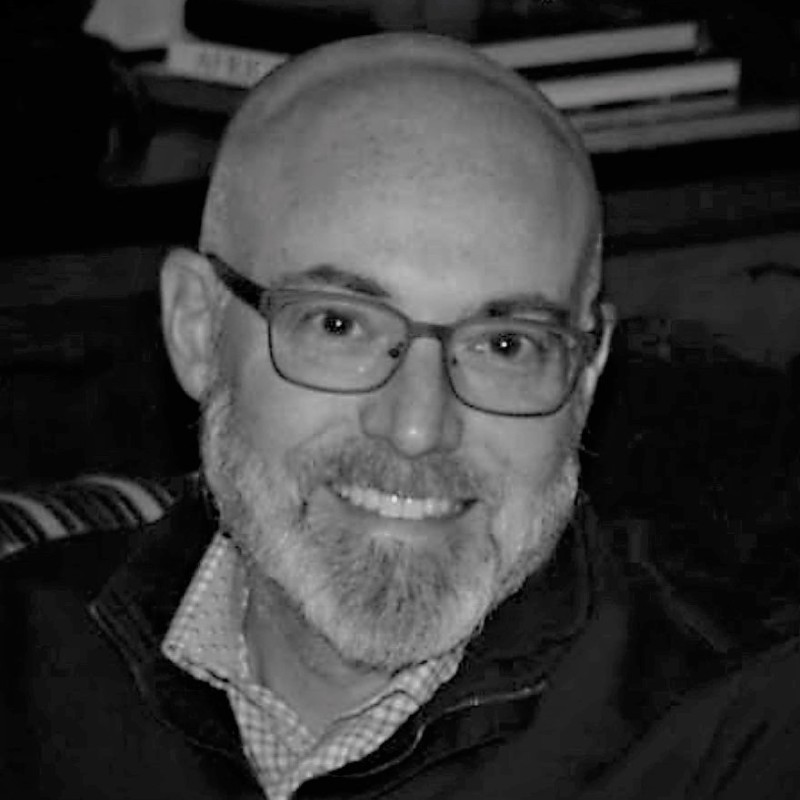Humans have always seen the future in parts. We rarely see the big picture and often overlook the positive aspects of work and life.
Technology hasn’t exactly helped provide context either. It has made the workplace less human and excludes who we are as individuals—we simply exist as numbers in the system.
Given the abundance of resources, how can we create global communities that celebrate human accomplishment and legacy?
An appreciative futurist is a person who has an optimistic view of work, life, and organizational growth for a better future.
Jeremy Scrivens is the Director of The Emotional Economy At Work and an appreciative futurist.
Technology and abundance
Technology has fundamentally transformed the way we work. Drawing from Klaus Schwab, the chairman of the World Economic Forum, Jeremy says we can no longer stay detached from the role machines play in the world today. Technology can either be used to render people dispensable, as does automation, or can help create a more inclusive world. But building a brighter future can only happen if we shift to a mindset of abundance.
Technology focuses on organizational needs and knows very little about who we are and what we do. An abundance mindset broadens this perspective by making technology more accessible. People can now share their life experiences in a global community, support causes they care about, and “do more good at scale.”
Retaining employees
Employee retention is a dated concept. Jeremy explains that while it is natural for employees to seek change, the intention of investing in talent needs broadening. Organizations need to stop equating employee turnover with the loss of talent. They need to look beyond their immediate motives and see the world as a global community.
The abundance mindset steers people to take action for the greater good. Jeremy briefly recalls his experience conducting exit interviews as a HR professional and says leaders learn little by focusing on why employees leave. They would gain a lot more by talking to employees about positive experiences and finding ways to replicate them.
‘Life Work’ and its applications
Millennials have changed the outlook of employee psychology. Jeremy states that newer generations do not separate their personal and professional lives. They only invest in ideas they deeply care about and see the need to replace the rigid concept of corporate social responsibility with genuine human connections.
Where traditional mindsets fail, Jeremy says, abundance succeeds. Younger generations have a unique opportunity to break through traditional mindsets and mould a future that benefits humanity.
Links
Quotes
5:42 – “If you wish to accomplish more at scale, do more good at scale, then you’re going to put the tech in the hands of each of your people. And you’re going to create ways in which they can own that.”
8:28 – “When someone’s leaving, you go to that person, you say, tell me the reasons why you are leaving, you learn nothing about why they’re staying. So rather than ask people why they’re leaving, go to your best people, and say, what has been the most extraordinary experience you’ve had in working here?”
Today, our guest is Jeremy Scrivens. He’s the director of The Emotional Economy at Work and an appreciative futurist. Hey, Jeremy. How’s it going?
Good, Neil. I’m very well, thank you.
Yeah, it’s great to have you on. You were a part of our tweetathon that happened back in October. And just great to connect with you and all the insights you brought up for that. But I want to start off with this term, appreciative futurist. What does that mean?
It was a friend of mine actually dropped that term three or four years ago. So he calls it appreciative futurist. And what it means in a nutshell, appreciative, for me, I switch to a strengths based view of work and life and organizational development and growth innovation about 12, 14 years ago based on the work of David Cooperrider, “Appreciative Inquiry,” or in America I should say inquiry, which is the idea of bringing the whole system in the room to reimagine the future from the wholeness of things, not the parts of things, which is the way we’ve organized work for 300 years. And futurist means an optimistic view of the future, but not optimistic because it’s nice to be optimistic, but because of the conversation shift from focusing on what’s broken to look toward just discovering what works. So, we’re tapping into an abundance concept there. And when we do that, we can actually start to reimagine the future where there is an abundance for all. So an appreciative futurist, yeah, I thought that was a nice term, I thought I’d adopt it, but it’s a focus on the future. It’s the appreciation of the best of the present, the best of the past, and then reconfiguring that to create and imagine a future together.
Well, you definitely touched on one of my favorite words, which is abundance and an abundance mindset, which I feel like, the more I learn about it, the more I wish we could shift to that and try to realize that we do have enough. There’s enough to go around of many resources we have. I don’t know how longer that will be true. But where do you see this abundance mindset? How do we build that more into our organizations today?
Well, I think the keyword you used there is mindset. And I think a lot of the work, protect the new technologies, for example, which have a significant impact end potential impact, for either good or for bad. I call that the first stream or second stream used to the tech. I’ve come to understand that it was Klaus Schwab, the chairman of the World Economic Forum, who said a couple years back, that the new technology is of such significance, that if we can no longer be agnostic in terms of how we use the technology. We either use the technology to see people as dispensable, for example, automation for its own sake, or we will use the technology in order to augment every human being and to serve humanity, which is what I’ve been writing about and looking to get the stories up around that. So that means it’s a decision about how we value things. It doesn’t start with a tech. So I’ve been looking at tech over the last few years. I’m not a technologist. For some reason, I’m on all these top 20, 30 lists or whatever around technology, which I scratch my head because I know nothing about technology. Honestly, if you asked my seven-year-old granddaughter, she’ll say, what are you doing on that list? Serious? Because she can run rings around me with an iPhone. But I think that the thing I’ve come to understand nearly is this, that for the technology has been in the hands of the few for a long time. The focus has been the organization, when I started work back in 1978, I didn’t exist from a technology perspective until I was given a job title, right? So work was defined in the narrow context of a job and then the hierarchy of classification of jobs. I didn’t exist in an organizational sense, or technology sense until I was given an employee number in the big Oracle payroll system or what have you, or SAS system. Technology was owned by the companies and it was taking a part of Neil and a part of Jeremy and that was what we defined that as being uncertain. So that was a deficit view. But the abundance view says everyone should own technology. And I asked one of my Silicon Valley mates last year. I said, what’s the ultimate potential of the new tech? He said, Jeremy, the ultimate technology of the new tech is to put the technology in the hands of every individual on the planet, right? It was a lovely response. And I call it hashtag me. And then to go further, to bring people together around a shared cause that they care about, hashtag me. Now what that means is a shift in mindset from this view that technology information is owned by the few, you’ve got firewalls. And so my question is, do you spend more time, I’m talking to leaders now, do you spend more time with that which you wish to avoid or that which you wish to accomplish? Because if you wish to accomplish more at scale, do more good at scale, then you’re going to put the tech in the hands of each of your people. And you’re going to create ways in which they can own that, but also then see that the new forms of working as a life work continuum, hashtag life work. So we move beyond the idea of joining a company as work to become a part of a global community of life work. And I think those are the areas that I’m interested now, the shift towards the ownership of the technologies by the individuals, and the ability to reimagine work, which allows people to create their stories of contribution in that space. So it’s a conversation with leaders around what do you care about? And what’s your life legacy? And how are you going to raise the legacy above this? Then the technology comes second. If we start with the technology first, what happens is we shift to the existing mindsets, which are also around parts of things, not convergence. And so there’s a potential. So it is a mindset shift.
We have to start with the mindset and then figure out how to use the technology related to that. Speaking of that, a lot of the questions that I’m going to ask you, I think would be in terms of we think of employee retention. But I want to take some time to redefine that word. Because for the most part, when we think of retention, we think, man, I hope all these people don’t leave because it’s a pain to find new people. So that’s like, what retention is thought of. I don’t want to have to find other things. But how is that an outdated view? How can we update that view of what it means to retain people in the organization?
The word retention reminds me, rhymes with detention, doesn’t it? It is an old view. It’s also, again, a deficit view. It’s the view that people own people, or organizations own people, or you’re investing in people, only for your own benefit. So if they go away and start their own practice, or they shift somewhere else, then you’ve lost them. But not if you’re in a community, or the new communities of life work, that doesn’t apply, because you can release people, you can steer people. So my question would be, do you steer people for your own gain or you steer people for humanity? Because if you steer people for humanity, it will come back to you. It will come back to you. People will come back to you. But go back to the idea of appreciative futurist, there’s a good example of a shift in the questions. So one of the things I did when I worked with organizations and leaders is to walk them through over a bridge of switching the conversation from seeing things as a problem to an appreciative view. And what I mean by that is that we’ve had 300 years of management thinking in practice, which is the language of problem solving, deficit. My people are leaving. So classic example, HR, so my background is Human Resource Management. So what I was taught exit interviews, right? So when someone’s leaving, you go to that person, you say, tell me the reasons why you are leaving, you learn nothing about why they’re staying, you learn nothing about what it is that leads to the most exceptional experiences to flow in their lives. So rather than ask people why they’re leaving, go to your best people, in fact, go to anyone and say, what has been the most extraordinary experience you’ve had in working here? What was the one time that you were working here when you felt most alive, that you felt that your contribution mattered, that you went home knowing that the job you were doing was the right job, and you were in the right place with the right people? And for once in your life, you knew you did something that really mattered to somebody else? Now, that’s a completely different question.
I saw the article you posted on LinkedIn recently about the airline that you had experiences with and the story that they shared about how they took care of all those guests that were coming in. It was just fascinating to look at this airline that seemed to be struggling on so many aspects, but then to really start to appreciate what was good.
That was the article. The day I stopped looking for the dirt and instead found a diamond in the dirt. That was a very proud experience. That was 10 years ago. And I don’t know why I haven’t done that article before. I kept meaning to write it but just sat down one day and wrote it but it was a very powerful shift. I think the article is really about me, to be honest, about my own journey, shifting from going in there as the expert to solve problems, cultural diagnostics, again, the language, cultural diagnostic. Diagnostic means to look at what’s diseased, for heaven’s sake. I used to do things like Lean and Six Sigma, no disrespect there. But my goodness, we used to use language like, we still used to break processes down using words like decompose. So as you listen to some of the language, we talk about decomposing processes, I mean, what on earth have we done? You learn nothing about life from studying death.
Well, let’s talk about life. And life work is a topic you’ve mentioned a few times now. So explain to us what that term means and how it’s being applied in businesses today.
So for example, the young people coming into the workforce now, as I get older, everyone seems younger. There comes a point where that will happen. When I joined an organization and gotten the job description, the job title, and my employee number, when I walked through the gates, into the office, into the factory, or into the office building, I had to switch off my life. I had to start and focus on the job. We separated things. And today, the young kids don’t make that distinction. So I’ve been privileged to be working on a couple of experiments, which have become more on experience now in what we call the social, which is the idea of how organizations who are taking what I call a second stream approach to the future of work, which augments people and now recognizing that the young people who’ve been wired on their iPhones and their smartphones for several years now, are deeply concerned about causes that they care about. The young ones are concerned about how the planet is going to be, what shape is going to be in 20 years time. My generation has not suited that well. We’ve been taught to switch these things often and compartmentalize them now. Young kids walking through the streets of Bendigo in Australia or Birmingham, Alabama, Birmingham, UK, seeing the homeless on the streets, starting to think about how can I go to work, and just do a work, do a job and not be concerned about this. So they are now interested in what we called social, we’re moving beyond the idea of corporate social responsibility, which is a top down hierarchical, well intention, but program based approach, to the idea of organizations moving into a responsibility in place in community, to the idea where individuals care about social good causes. And so we know this, that the young people will ask questions like supply chain questions, where do you get your coffee from, what conditions exist for the laborers and the workers who are making, who grind the coffee in the coffee plantations. But they don’t just want to know what those conditions are. They want to connect with these people from the heart and do life work together. They don’t make the distinctions about job titles, or the distinctions between life and work. So to give you an example, this idea of a social room which came to me a few years ago. Most of my consulting work, my work with organizations is to coach them to facilitate large scale positive change, and to shift the conversation from continuous improvement to innovation, and to release abundance by tapping into all the strengths and talents that we’ve just let allow dormant to lie in the ground here. You’d be familiar, Neil with the statistics around employee engagement, which have been very low. Gallup came up with this idea of only about 15% of the world’s workforce was engaged 20 years ago. To be quite frank, those figures have not changed a great deal. So despite all the surveys, and all the stuff that we’ve tried to do, they’ve not really changed a lot, simply because the mindset has been that only a few create the future. But in today’s world, the young kids have got this talent to be able to reimagine the future so let’s engage them. A few years ago, I was working with a mushroom farm of all places with only a small number of employees, 60 people, but they were looking to the CEO there was being hit very hard by the supermarkets to drive his price down to a level that was not sustainable. And he heard about appreciative inquiry. So he said, Jeremy, let’s get my 60 people into a room on a Saturday morning, which I think is a great idea, they’ve never done it in that sort of industry before. And I talk with him about, on the week before, about setting up waht we’ll call the affirmative topic for the conversation. So the affirmative topic is critical, not a problem. But an affirmative topic, which is a topic that is an imaginative view of the future, which is open enough to allow others to come in and co creative. And he got on the phone and was very agitated because the supermarkets had dropped his mushroom price down from $28 a kilo to $16 a kilo within 24 hours, and he couldn’t survive. They do that here. They just do price wars. Because it’s not a system based on on partnership. It’s a deficit based system. Oh, well, we’ll get rid of this, this, this. If these growers don’t like it, they can go somewhere else and we’ll hire someone else. That’s how they think. So I managed to persuade him to shift the focus because he said, Jeremy, I want to spend the whole day with my team taking their ideas to take out cost, the opposite view. You learn nothing about growth by taking out a cost. And so I said, let me ask you question. It’s 25 years from now. You’ve got your grandchild or your niece, she’s beautiful. She looks up to you and says, Papa, and she won’t these words but in her own language, she’ll say, “You did something amazing with your life, you left a legacy, didn’t you, Papa?” You’ll smile down and say, “Yes, darling, I did.” She’ll say, “What was that legacy you left, Papa?” And you turn around and you say to her, “Darling, I spent my whole life taking out costs.” Is that your legacy? And I said, don’t shoot the messenger. And I said, let me ask you what’s your one dream you’ve had about your business? What made you sit down with your wife or partner and maybe you thought, what if we could do this? And he came out and said, we’re concerned about the levels of obesity in our kids in Australia. And if only we could do something about it. If only the kids in Australia ate mushrooms, and good food, and healthy food. I would love to see that. And what are we going to do with the schools somehow. So within three days, I coached him to stand up in front of people Saturday morning and share that story. Talked about costs, but then he looked at me and he went back to the story. He said, would you create the future with me where somehow we got into the schools, we’ve created the market, but we do something really powerful. He said, “Who cares about kids?” Every single person put their hand up. So you got to shift the topic back to everybody. So everybody owns the topic. That’s where you start. And it comes from the heart. So in a nutshell, they went through the appreciative inquiry conversations and they presented this way in which they’re working in the future. So one group of six of them got together. There was the officer. There was the supervisor, two young women who go to university. They’re not able to use their iPhones, because they’re told to switch them off and put them in the cupboards. And two young African Somali refugees who just escaped with their lives from Somalia, and were working with their hands. And they came together as an equal group of people, and the financial manager was there, and they presented the design prototype of the future. Here’s what they said. “Officer, we have gone to the schools with the world’s first colored mushroom growing kits for kids.” And somebody yelled out, “Is that possible? I’ve always wanted to do it.” And then one of the African guys goes, “And we are collaborating with Master Chef who’s gone into the schools with us with customized menus for the kids to use. And the two girls, one of the two girls couldn’t contain herself anymore. She rushed out of the room into a locker, got an iPhone, came back and said, “And we have mobile app. And we have social community.” And I thought social room. And that then gave me the vision for going to organizations to say what if we were to create a social movement division of your business? What if in part of the work, the work to reimagine the future, you were able to bring your social good, so each person was encouraged to share their social good stories on social media and to become what are called social natives. And so we’re doing this marvelous experiment with Ultimate Kronos Group now converged in America, one of America’s largest HR tech companies, have been building the social now for 14, 15 months, where they are engaging a global conversation around the things that people care about and encouraging them to open up and be authentic in the way in which they see life and work. Very powerful experience.
Yeah, absolutely. I love that example just to be able to pull those things out. Jeremy, as we nearing to close here, I just want to ask you one question. You mentioned a lot about young people, a passion for you to listen to them. How is it that you maintain a connection with other generations? It’s easy just to hold with people who are like you and people who you’ve talked to a lot. But what do you find in your life is a powerful way to maintain connections across generations and know what people are thinking?
So we’re part of a social movement in my own town, I talked about the social room. So there’s been a lot of stuff about Facebook recently. But technology is neither good or bad. It’s what you do with it that matters. And in a free world, then there’s a responsibility to make those make this course, are we negative or positive. So in our own town, and one example, a group of us started up a social movement four years ago called Love in Action, which we saw the homeless issues, we saw domestic violence issues, drug issues and problems. And so now, in a town of about 8,000, 4,500 people are actively involved in looking after each other. I believe the Facebook stats for activity, they look at monthly active users. And if you’ve got about 60% or 70% active users a month, you go pretty well. Last month it was 86.1%. And in there, there are 18 year olds, 60 year olds, 40 year olds. And we have a youth Love in Action team now, which is consisting of 15 or 16 year olds, who are collaborating to connect with the young kids and to support each other, mental health issues, befriending Big Sister, Big Brother, but also starting social enterprises. We collaborate with others to form social enterprises, the town that is often poor, has somehow found $1.5 million worth of food to pass through the community from hand to hand in the last two years. And that’s an example of a social room of social experiments. To us, and I think one of the questions that is similar to this to finish up would be, there is no difference between any of the generations. The difference is that the younger generations have access to the tools that we didn’t have, that my generation didn’t have. Through history, there are people who wanted to lead, and of course, it’s to make the world a better place, like William Wilberforce. Imagine a young William Wilberforce today, with a vision for ending slavery, imagine what he could do with the tools we have now.
Yeah, that’s amazing. Jeremy, it’s been fun to just listen to these stories to be encouraged by what’s happening in other parts of the world and what’s going on. If people want to hear more of this kind of stuff, where should they go to keep in touch with you and the work you do?
I’d love to have a conversation. My LinkedIn profile is a great way to reach out to me on LinkedIn. And also my Twitter handle. I’d love to have a conversation. I want to see more stories, more stories of what we just talked about, more mushroom farm stories. We need collaboration now more than we need competition. And I wonder if we collaborate as an ecosystem, we’ll actually have more to go around to look after each other, not less.
Yeah, get back to the abundance mindset, right?
Absolutely.
Great. Thanks for being on the show. We look forward to staying in touch.
Cheers. Thanks, Neil. All the best.
Jeremy is an Appreciative Futurist & Collaboration & Innovation Catalyst. He is a Director of The Emotional Economy at Work and a global thought leader and consultant on building collaboration in a digital world for innovation, social good and the future of work. Jeremy deploys the principles and methods of positive transformation, including Appreciative Inquiry and Brilliant Fit, to engage enterprises and communities to collaborate, re-imagine and co-create desired futures for growth and vibrancy at scale.
Jeremy’s work helps enterprises and teams to find and elevate their these strengths, and extend them across the whole system to become the normal culture or experience.












